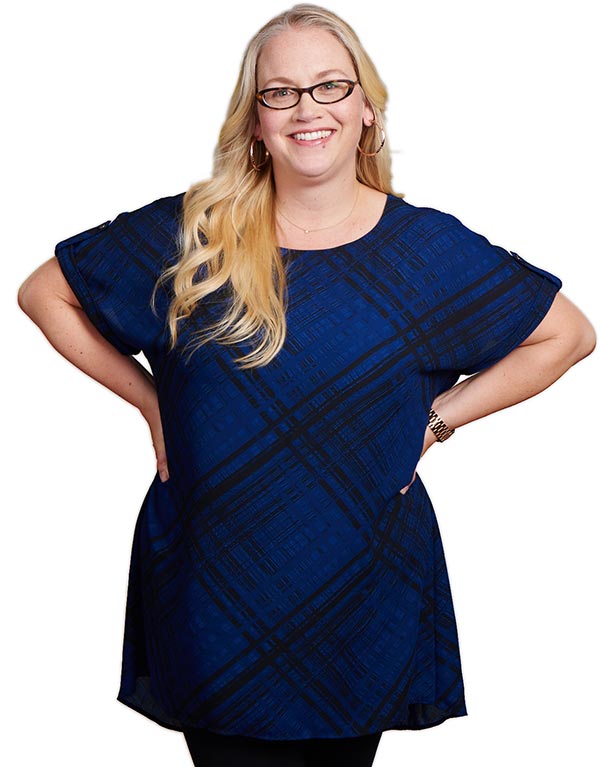Thanks to HealthyGirl.org reader Caroline, 26, for sharing her Real Story today. I so relate to not wanting to admit to having a problem. But it’s so freeing when you do, isn’t it? xo…Sunny
REAL STORY: Even when I was in the midst of a serious eating disorder, I never considered myself someone who had a problem. I still have a tough time admitting it.
But the signs were there: It started with my venture into competitive long distance running. I began to see a weight loss – a thinning out of my constantly morphing 16-year-old body – and I liked it.
I had always been extremely health-oriented. From the very moment I knew what calories, health food and exercise can do for the body, I became fascinated with all things related to the subject matter. It had been a healthy interest up until I took my knowledge and began to use it to harm my well-being.
I started counting calories, and what began as a tally of my daily food intake quickly morphed into accounting for everything that went into my mouth– down to a stick of gum (5 calories). As I got deeper into this disordered eating, I started playing with my head, rounding a calorie count higher “just in case” I had somehow misjudged.
I knew there was something wrong, but I couldn’t stop myself. I told myself that other people just didn’t understand – this is what it took to be healthy.
When counting calories seemed like too little effort, I started taking laxatives on a near everyday basis. I wasn’t sleeping at night because I had such horrible stomach cramps, and I found myself half-asleep in the middle of the night, standing at the counter and picking chocolate chips out of mint ice cream on more occasions than I would like to admit.
I saw pictures of other girls who were anorexic and envied rather than pitied them, and I relished in the sight of my jeans falling off my hipbones. Concerns from family members started to creep their way into conversations. “You must be a double zero!”(Really? Could I be?!)
“What are you trying to achieve? You’re too skinny.” (Well, you’re just jealous ’cause you’re fat.)
I was sitting in computer class one day, when my cousin grabbed my upper arm and put his hand around it.
“Your arm is smaller than my wrist!’ he said. “It’s gross.”
You would think these comments would make me feel bad, but they only fueled my obsession. I loved them.
And then, I fainted during a cross country race.
My body was shot. I had abused it and asked it to attend, rise again, every day and join me in this game I was playing. This time it responded – “Not a chance.”
Shortly after the fainting incident, I entered therapy and spent much of the first few months in complete denial. “I do not have an eating disorder,” I told myself.
“Other girls have eating disorders. I am just health conscious.”
But, eventually, I came around and recognized what I had been doing to my body. I was not healthy, in fact, I was pretty sick. I had been fooling myself all along.
My uncle, who is a recovering alcoholic, once told me that he has to fight his addiction every single day. There are days where he thinks about taking a sip of alcohol every single minute, and others where it only crosses his mind a few times. But it’s an ongoing struggle – and an urge he will never stop fighting.
And that’s the key. While I will always struggle to improve my relationship with food and exercise, I am much more able to recognize when my old tendencies begin to find their way into my life.
I’m always going to have a Type A personality. I obsess over things that are seemingly not a big deal to others. I tend to over think situations and work myself into an anxious frenzy.
But I also work really hard for what I want. I excel at my profession and I love with my whole entire being. I’ve learned to channel compulsions into more positive resources, and I work every day to keep myself in that place.
Every. Single. Day. —Caroline
Do you have a Real Story to share? Leave a comment, or email it to me for possible posting at [email protected]. xo…Sunny
For a new food-sanity or body-sanity tip every single day, follow @hlthygrl on Twitter!




![How Therapy Has Worked For Me [guest post]](../../../../wp-content/uploads/2011/02/therapy_thumb.jpg)

![Have You Dared to Tell People About Your Eating Issues? [guest post]](../../../../wp-content/uploads/2011/05/3674715600_57a4e914e43-253x300.jpg)
![How to Deal With Big, Bad Food Guilt [guest post]](../../../../wp-content/uploads/2011/04/2551148803_0f4b7486be-300x242.jpg)


This is a really well-written account of disordered eating.
I think it is important to note, however, that whilst those with other addictions/compulsions, such as alcoholism, share similarities with disordered eating, there are also marked differences. Like the fact that we have to eat to survive and can never ‘give up’ being around food etc. and partaking in it without dire consequences.